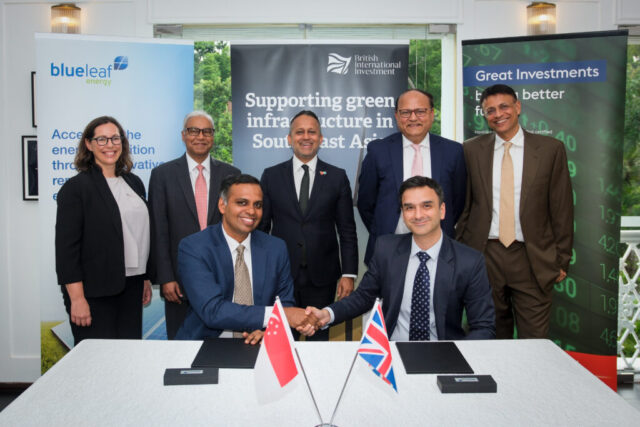One of Sweden’s largest pension funds prides itself on being a champion of gender equality. But AP2’s means and willingness to push for real change is limited. “If you invest in many companies, your engagement will always be shallow.”

Thousands of investments to spread risk
- Due to small stakes in a large number of companies, it is hard for Swedish pension fund AP2 to push for more diversity in the companies it invests in.
- AP2 CEO Eva Halvarsson claims that this strategy is necessary for institutional investors to spread risk.
- Even bigger investors such as Swedish pension fund Alecta, demonstrate that diversification and sound risk management is possible even when investing in fewer companies.
Many institutional investors argue that they do what they can to invest sustainably. One example is AP2 (which stands for Andra AP-fonden, one of five buffer funds within the Swedish pension system). The fund has €37.5bn in assets, spread over equities, fixed-income securities and alternative investments.
CEO Eva Halvarsson makes a point of investing for diversity. Gender equality is especially close to her heart, she points out. According to Halvarsson, AP2 primarily does this through shareholder engagement; the fund owns assets in about 2,300 companies all over the world.
Gender scoreboard
“We hold larger shareholdings in Swedish companies and often get to sit on the nomination committee ahead of the annual shareholder meetings. Then we can influence the composition of the board and our policy is to always vote ‘no’ to an all-male or all-female board, for example.”
But spreading out your investments across thousands of companies is not the right strategy if you are serious about making a positive social impact, according to Jakob König, project lead at Fair Finance Sweden, an organisation that monitors how banks and pension funds invest people’s savings.
“Your engagement will always be shallow. You might do one good thing, but that doesn’t mean you are doing it right.”
AP2 also puts together a diversity scoreboard for the largest Swedish private equity holdings in which they have invested. “This has a competition element to it when we share it with the companies – no one wants to be at the bottom,” Halvarsson said, on the phone from her winter cabin in the Swedish Fjällen, close to the Norwegian border.
Data-driven asset management
Outside Sweden, it is harder for AP2 to push for gender equality. 80% of AP2s assets are located in other countries, divided over more than 2,000 companies. AP2 only has small shareholdings in those businesses, meaning it has little clout to influence a company’s strategy.
A big part of asset management is data-driven, instead of an asset manager who personally gets to know the company they invest in. König av Fair Finance sees this as a low-cost and not very ambitious approach to impact.
“With a management strategy mostly based on indexes you won’t be informed enough on what the companies are actually up to. And it is impossible to be an impactful investor if you only own a small stake.”
Under scrutiny
An often heard argument from institutional investors is that investing in a large number of companies is necessary to spread risks. “Ensuring that pensions will grow over a long-term period is the mission we got from the Swedish government,” Halvarsson pointed out.
But this argument doesn’t hold up, according to critics. Investing in unsustainable sectors is increasingly seen as a risk in itself. This is illustrated by plummeting stock prices of oil giants such as British Petroleum and Shell.
The way AP2 invests people’s pension savings has been under scrutiny for years. Only last week, Dagens Nyheter, the biggest Swedish daily, reported that the fund has €8.4mn of assets in companies with close ties to the Myanmar regime.
A 2019 law was supposed to force Swedish pension funds towards sustainable and ethical investments. The law, however, leaves it up to the pension funds to determine what investments actually qualify as ‘sustainable’ and ‘ethical’. In practice the law has had no effect, König and Halvarsson said.
Knowing who you invest in
According to König, there are enough examples of how large pension funds can act differently and have a real impact on gender equality in the companies they invest in. He brings up Swedish Alecta, with €101.1bn in assets, invested in around one hundred companies. This compares to AP2s €37.5bn in assets across 2,300 companies.
“The big advantage is that you get the chance to truly know and understand the company you are investing in, which is risk management in itself. Also: Even with a portfolio of around a hundred companies it is possible to invest in different sectors in order to spread risks.”
“Cannot engage in everything”
Eva Halvardsson at AP2 admits that the fund “can’t engage in everything” with its current asset management strategy. “Of course, it is better with a smaller portfolio if you want to have more impact.”
In December last year, AP2 committed itself to sell off shares in around 250 companies that don’t comply with the UN Paris Climate Agreement. “Other than that, we don’t have any plans on lowering the number of companies we invest in. This is part of our strategy to keep risks low.”





